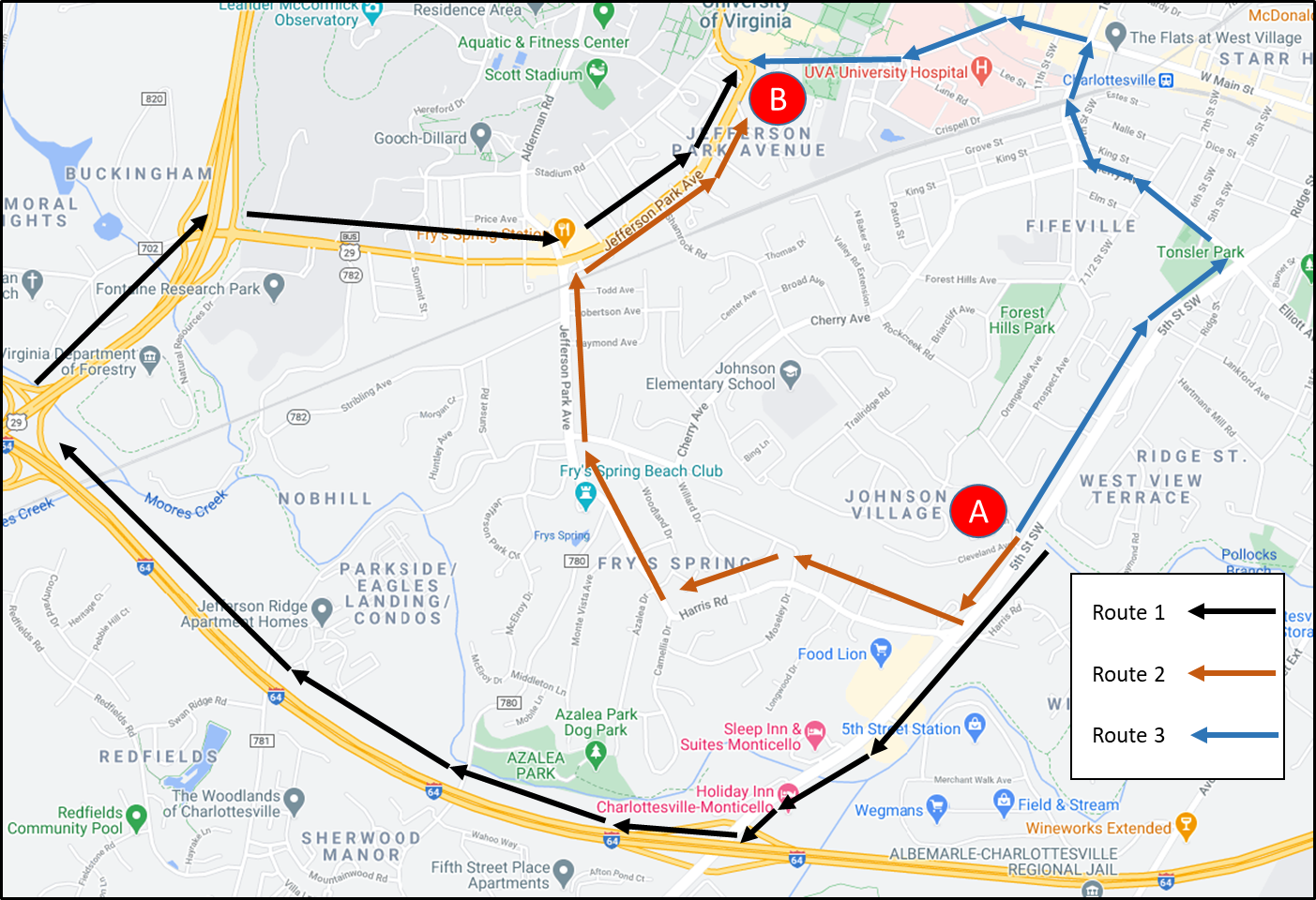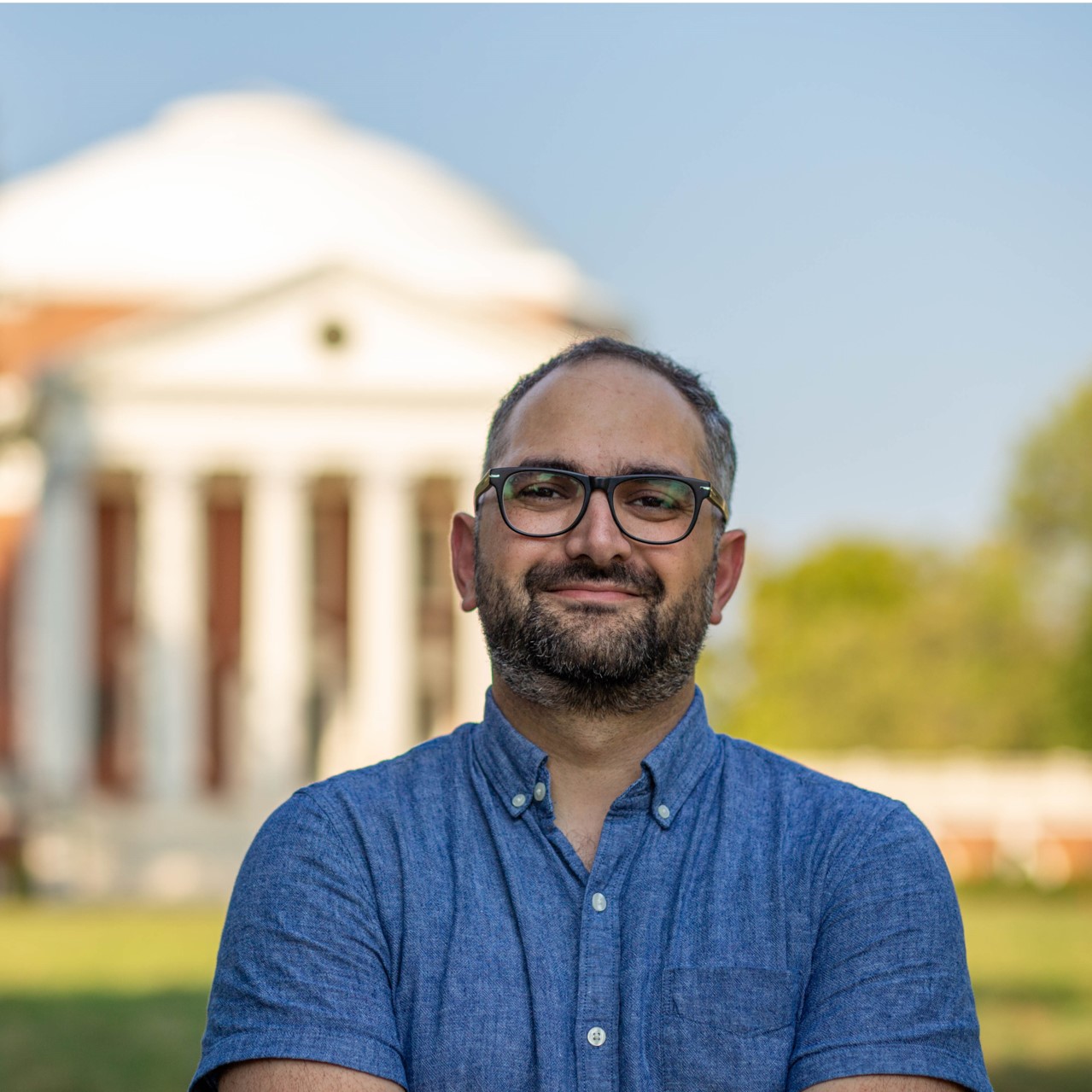Routing systems, despite their big advancements over the past years, are yet to be optimized around the end user’s feelings and needs. In this project, we propose a new framework for leveraging biomarkers data collected through smart wearable devices for human-centered personalized routing to account for how drivers might feel in each candidate route.

Heat map of drivers' heart rate in different neighborhoods of the City of Charlottesville

We can use the data collected through HARMONY to better observe the differences in different areas of the city based on historical data of drivers’ biomarkers data collected through smart wearable devices. For instance, note the differences between regions #1 and #2 in their contribution to drivers’ historical heart rate measures.
We can also observe different locations in the city depending on the infrastructural elements might be associated to higher stress levels when compared through historical heart rate data
Heat map of drivers' heart rate in different neighborhoods of the City of Charlottesville

Differences in different routes between two arbitrary points
Between two arbitrary points of A and B, a typical routing service such as Google map provides us with three different routes.
But these routes are very different based on the infrastructures in them and how they might potentially affect a driver. They pass through different areas of the city with different traffic densities, noise levels, and speed limits.

Historical heart rate data in these routes are different from each other suggesting their possible effect on drivers passing through these candidate routes. Thus three routes with similar ETA can be very different if considering their effect on the drivers.

Related Publication
Tavakoli, A., Boukhechba, M., Heydarian, A., (2021). Leveraging Ubiquitous Computing for Empathetic Routing, Published in the Computer-Human Interaction (CHI) 2021

Arsalan Heydarian
Principal Investigator

Arash Tavakoli
Graduate Research Assistant